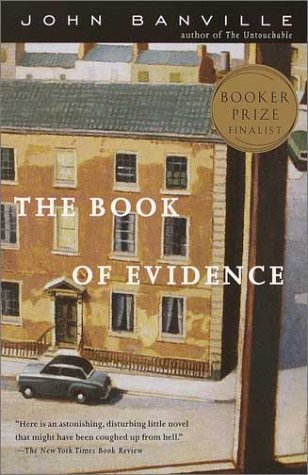Notes on a Scandal
 Wednesday, October 22, 2008 at 08:36
Wednesday, October 22, 2008 at 08:36  This is not to say that British writer Zoë Heller, in her second novel, patterns her text on a classic. Rather, she seems to grasp the age-old concept that you cannot sublimate something intractably earthbound. The core of a literary work, its banner so to speak, must be a worthy theme: love, death, intellectual curiosity, nostalgia, remorse, happiness, remembrance, and so forth. It cannot and should never be corporal gratification, however much emotional power such a connection to another human being often produces. Heller's narrator must then be an old Romantic gazing upon a princesse lointaine from some secluded nook, maybe simply the other corner of a teacher's lounge. She also wisely understands that, to improve the formula, the child should be older (Steven Connolly is fifteen), the first-person narrator should report such an affair instead of experiencing it herself, and, most importantly, the novel should mirthfully slip into satire. A satire, one might add, of the simplest mold: that of society’s hypocrisy in the face of scandalous private affairs. These small changes (apart from an older and female narrator) are brilliant enough to cause a seismic shift in perception on the part of the reader.
This is not to say that British writer Zoë Heller, in her second novel, patterns her text on a classic. Rather, she seems to grasp the age-old concept that you cannot sublimate something intractably earthbound. The core of a literary work, its banner so to speak, must be a worthy theme: love, death, intellectual curiosity, nostalgia, remorse, happiness, remembrance, and so forth. It cannot and should never be corporal gratification, however much emotional power such a connection to another human being often produces. Heller's narrator must then be an old Romantic gazing upon a princesse lointaine from some secluded nook, maybe simply the other corner of a teacher's lounge. She also wisely understands that, to improve the formula, the child should be older (Steven Connolly is fifteen), the first-person narrator should report such an affair instead of experiencing it herself, and, most importantly, the novel should mirthfully slip into satire. A satire, one might add, of the simplest mold: that of society’s hypocrisy in the face of scandalous private affairs. These small changes (apart from an older and female narrator) are brilliant enough to cause a seismic shift in perception on the part of the reader. They (Humbarb and Sheblita) become friends at a local high school, but it is evident that neither one of them belongs there. Barbara should be doing what she does most of the novel, that is, composing her salacious prose; Sheba, however, is not quite as artistic as her pretensions and trendy thoughts try to postulate. Her husband Richard builds a basement kiln in their privileged residence for her to have a creative outlet, but Sheba ends up frittering away her time in naps and, literally and figuratively, half-baked projects. What is interesting is how much Barbara, a brilliant psychologist of everyone except herself, demands of Sheba, a rather silly woman who has glided through life without too much countercurrent. The most minor of Sheba's decisions are hot potatoes, and even her primary lusts are a matter of debate:
It is a nice question as to when exactly Sheba became conscious of having amorous feelings for Connolly or, indeed, became conscious of his having amorous emotions for her. I have pressed her on many occasions for specificity on this issue, but her responses are maddeningly inconsistent. At times she will insist that she was guilty of nothing more than maternal fondness for Connolly and was utterly “ambushed” when he first kissed her. At other times she will coyly volunteer that she “fancied” him from the start. I daresay we shall never know for certain the exact progress of her romantic attachment.Barbara’s queries for ironclad truth are not only stereotypically male, they evince the deep frustration of a scientist who has never learned to empathize with the creatures he studies. It would almost be inhuman to begrudge Sheba her mixed feelings about such a risky venture. But it is no surprise that the difference in age between Steven and Sheba is about the same as that between the two teachers, and Barbara, in asking Sheba how she feels about the boy, is essentially asking herself about Sheba.
Vulgar speculation about sexual proclivity would seem to be an occupational hazard for a single woman like myself, particularly one who insists on maintaining a certain discretion about her private life. I know who I am. If people wish to make up lurid stories about me, that is their affair. I could not be sure, however, that Sheba would be offended, or enraged, or else horribly embarrassed. After considering the matter carefully, I decided it was best not to tell her about the rumours.But writing about them at length – well, that wouldn’t do any harm whatsoever. That the end is given full vent at the beginning of the novel helps the reader relish each well-chosen word, each delicate sentence, each felicitous combination of sound and syntax, without racing through what would otherwise be quite a page-turner. And at the end, when Sheba’s former, changeless life is destroyed (like the tumult caused by her namesake) and her only friend turns out to be a duplicitous and lustful old woman, we sense remorse for, strange as it may seem, only Barbara. She is, after all, unpleasant and self-serving, but she understands her limitations and parlays them into artistic achievement. And Sheba? Sheba is still napping on Barbara’s couch, a few pages into some novel she will never finish.






